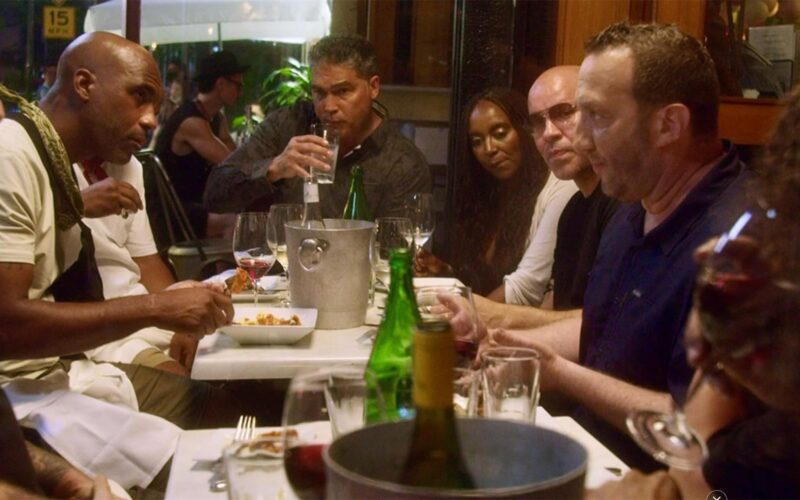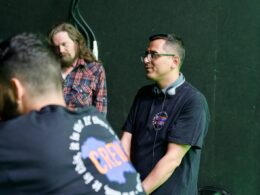Shot in just six days inside the beloved Lower East Side restaurant Il Posto Accanto during the pandemic, the film blends professional actors with real owners and patrons, capturing the resilience and spirit of community at a moment when New Yorkers needed it most.
In this interview with Indie Wrap, Rosenfeld reflects on the changing landscape of independent filmmaking, the magic of mixing actors with real people, and why telling authentic New York stories still matters more than ever.
You’ve been part of New York’s indie film scene since the 1990s. What feels different about making an indie film in today’s New York compared to back then?
In the ’90s, we shot on film. There was a lot of energy around indie film; big-name stars would show up for cameos. There were many small indie distributors committed to theatrical releases. Today, we mostly shoot digitally, which is both cheaper and faster. It’s harder to get agents and big-name actors to pay attention. Many indie films have a hard time finding distribution at all. Most are streamed without any theatrical release. The money is smaller, and the budgets are tighter, but the ability to capture more quickly with digital cameras is awesome.
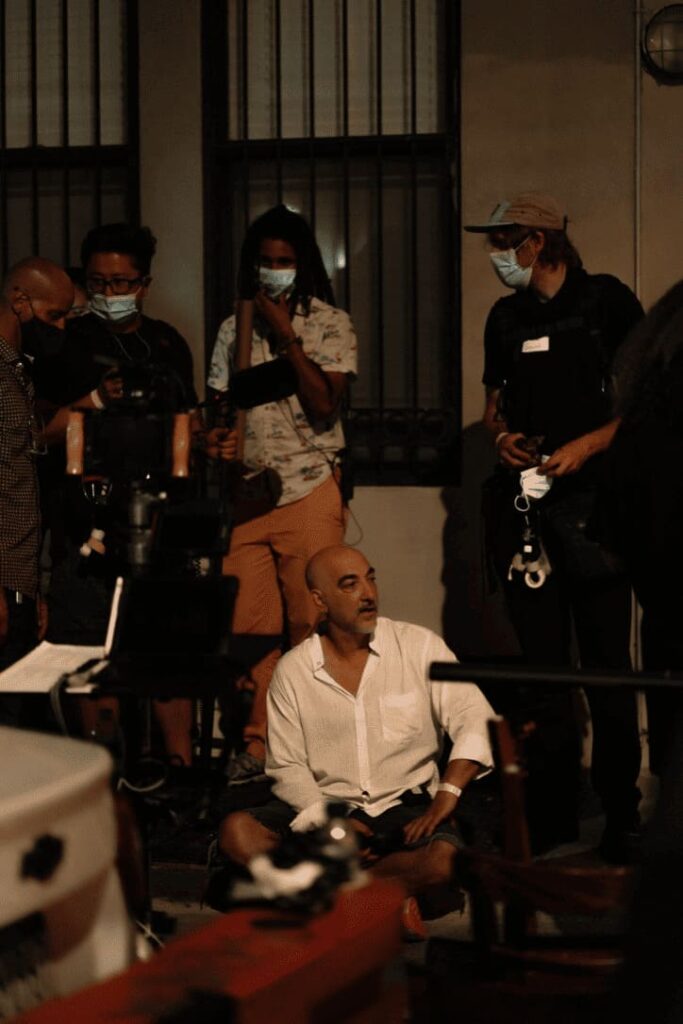
Sunday at Il Posto Accanto was shot in just six days inside a real Lower East Side restaurant. What drew you to that specific location, and why did you decide to film it this way?
We were attempting to capture lightning in a bottle. We were just out of the pandemic and were trying to make an authentic piece that resonated emotionally and also made people laugh. The restaurant and its owners are like family to me, as are the stars of the film. Many non-actors in the film are also people I’ve known. There was an incredible sense of purpose and commitment by all those involved. We had only enough money to shoot for 6 days. It’s a testament to what can be done with the technology that exists.
The film uniquely blends professional actors with real restaurant owners and patrons. How did you approach balancing scripted storytelling with authentic, unscripted moments?
I have a background in improv, and I started my career in the theater. When working with non-actors, it’s important to play to their strengths, to put them in comfortable situations, and to make them feel as if nothing they do is wrong. They ultimately become delighted by the process, and that shows up on the screen. When using improv, it’s important to know your in and out points of the scene, and I was able to give them that, as well as a really detailed explanation of what each scene was about and their roles in it. With the pros, you expect them to deliver the script; you can modulate the performance more, and it’s important, when they are working with non-actors, that they create a peer-to-peer relationship—a sense of play. It ultimately adds to everyone’s performance.
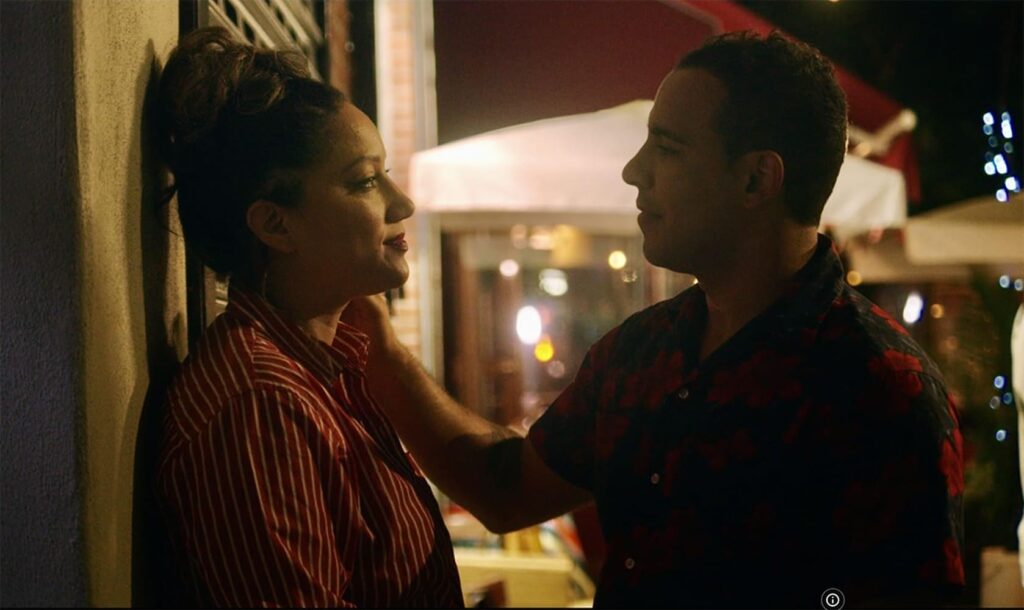
Il Posto Accanto isn’t just a restaurant—it became a lifeline for the community during the pandemic. How did that atmosphere influence the tone and themes of the film?
In writing the script, I was able to allow Bea and Julio (The owners) to give voice to what restaurant owners all over the city – and probably worldwide – were going through. It was very authentic and moving. It spoke to the importance of community and the generosity of the human heart during a major crisis.
You’ve worked across theater, film, and television. How did your background as a playwright shape the way you approached directing this project?
Danny Hoch, who is a solo performing whiz, wrote two long monologues for the film. We have worked together in the theater, and I know him as a person and an actor very well. It is very rare in film to have one character speak as long and as much as he does. I understand the power of his language, and it did not scare me to train a camera on him for a long period. The filmmaker side of me had to think rhythmically about how to cut it. It is hard to describe why you make the choices you do, but it seemed like all my experience was necessary to translate that part to film.
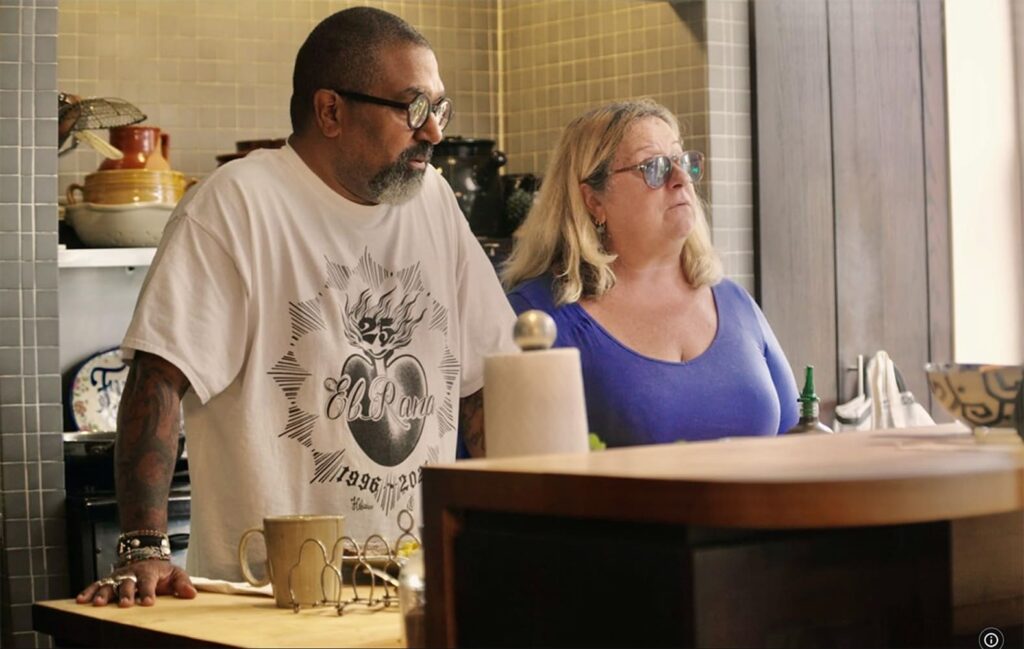
Victor Rasuk and Judy Marte reunited with you after Raising Victor Vargas. What was it like to bring them back together for this film, in such a different yet equally New York setting?
They are both friends of mine and of each other. It was a joy to see them sharing the screen. They grew up in the Lower East Side, blocks away from each other. So again, it felt like family coming home at a time when we were all craving community. When they did Vargas, they were brand new. Twenty years later, they are both accomplished actors with tremendous skill sets.
Danny Hoch, Victor Rasuk, and Judy Marte are joined by Julio Pena and Beatrice Tosti, the real owners of Il Posto Accanto. Did their lived experiences change or even rewrite parts of the story during filming?
We are all close friends. Much of the script was mined from real-life experiences and shaped to be entertainment. I wrote the script in a little over a week. I was in constant conversation with all of them. We shot the film only weeks after the script was done. The pre-production process was so collaborative that we rehearsed as much as we could, so not much changed during production.
Many are comparing the film’s energy to The Bear, but deeply rooted in New York’s Lower East Side culture. What do you think makes this story “very New York”?
We’re all born and raised in New York, so that’s the perspective we’re coming from. Every artist in every medium creates from lived experience, and ours is straight up NYC. I love The Bear and gotta shout out my homegirl Liza Colón-Zayas, but we shot this back in 2021 before The Bear premiered. Any comparison is pure coincidence, and by the way, we’re honored to even be mentioned alongside that show because we love it.
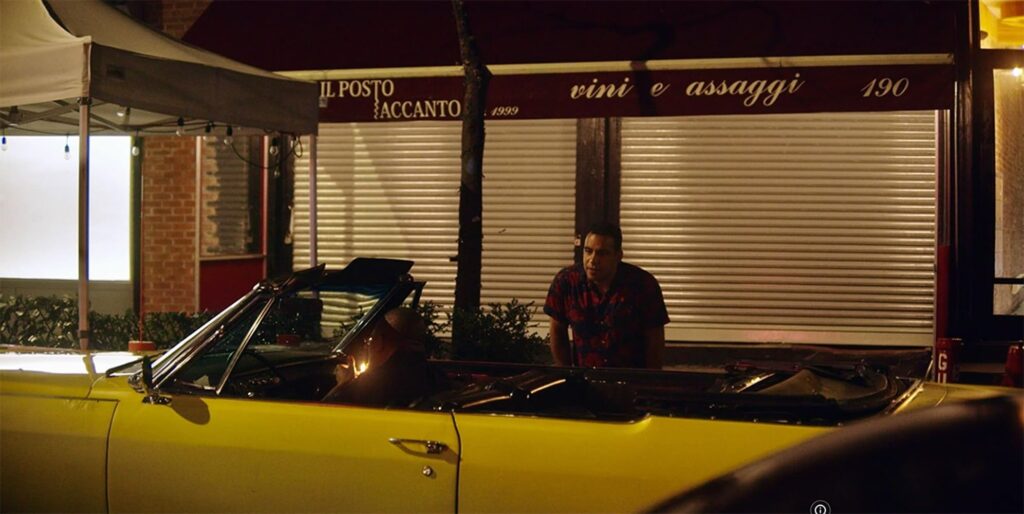
You’ve often told stories about resilience, community, and urban life. How does Sunday at Il Posto Accanto fit into your larger body of work as a filmmaker and storyteller?
Early in my career, a producer told me that my strengths are writing about situations where cultures collide. There is an effortless multi-cultural aspect of Sunday at Il Posto Accanto that is really just representing the way we live. It is also an example of how we could all live in terms of love, community, and looking after each other.
Shooting during the pandemic must have come with unique challenges. What obstacles did you face, and how did they shape the final film?
There were daily COVID-19 tests and mask restrictions. One of the good things about having such a short shooting schedule was that we only had to stay safe for six days. It was harrowing. On our budget, if anyone had tested positive, we wouldn’t have been able to complete the film. Everything had to go right, weather-wise, COVID-wise, and otherwise, for this to get made. God really smiled on this one.
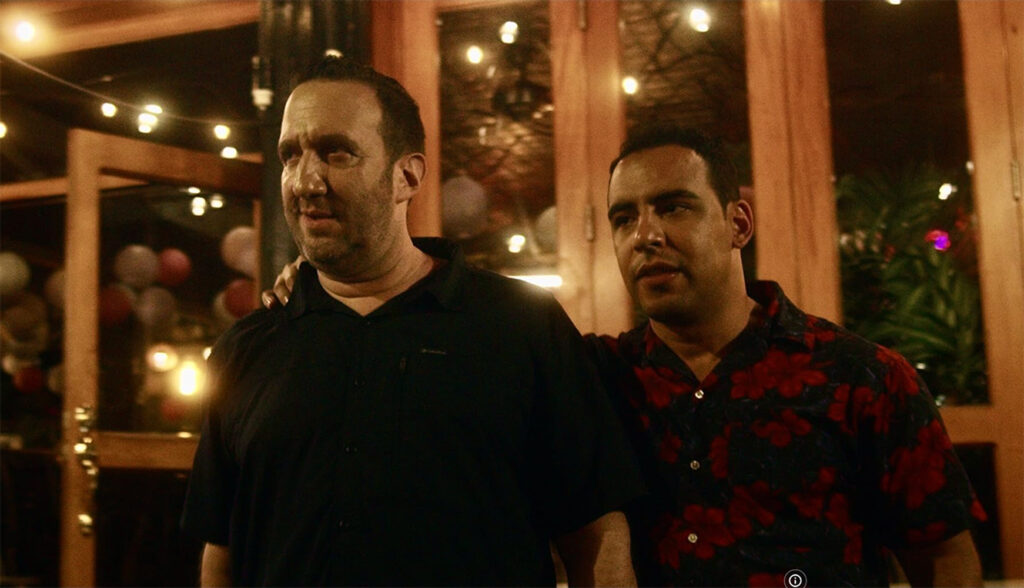
Looking back at films like A Brother’s Kiss and King of the Jungle, how do you feel your perspective on New York—and how you capture it on screen—has evolved over the years?
I grew up in the 70’s. The city was broke. Rents were cheap. Everyone was streetwise. Both of those films were made during the crack epidemic. It was dangerous. We had shooting incidents on both of those films. I was nonplussed by it for the most part. Extreme violence is something I’ve had contact with since I was a kid. NY is no longer dangerous. It’s actually really safe. My stepson is 14 and has never had a fist fight. The spirit is different, and I’m different. I’ve lived in other places, and my perspective is wider. The way I see it is different, and so that probably informs the work.
Independent film has always been about doing more with less. With this project shot in six days on a modest budget, what do you hope it signals for the future of indie filmmaking in New York?
If I can do it, you can do it. We need films that aren’t algorithm-generated. Original voices, embodied experiences, passionate people aiming high with the few nickels that they have. Many of our greatest filmmakers got their start that way. Technology is making it easier. I hope young artists watch this film and want to go out and make something. They are the future.





